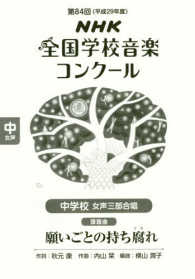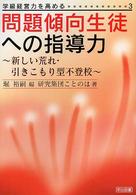- ホーム
- > 洋書
- > ドイツ書
- > Social Sciences, Jurisprudence & Economy
- > Social Sciences
- > social sciences in general
Description
(Text)
The consumption of human flesh has always fascinated
writers and researchers throughout the centuries.
Cannibalism is a social taboo in most societies and
religions worldwide, representing the worst act of
all. From Shakespeare s Titus Andronicus, to
Melville s Typee and Conrad s Falk; the acts of
cannibalism explore the boundaries of society and
perversion of human nature. They share a common theme
of the perversion of civilization and the exploration
of the seemingly fine line between the cultured and
the primitive, the sane and the mad, nature and
society. This fascination for cannibalism is based on
a process of perversion of what we consider good and
right. In these novels, a frightful image is created
by showing the darkest, most perverted side of human
nature in respectively a lovely, edenical valley, a
Roman leader and a wearisome tug boat-owner in
Bangkok. This book examines and explores the meaning
and context of the literary uses of anthropophagic
acts in the mentionedworks and the seemingly fine
line between the cannibal and the gentleman.








